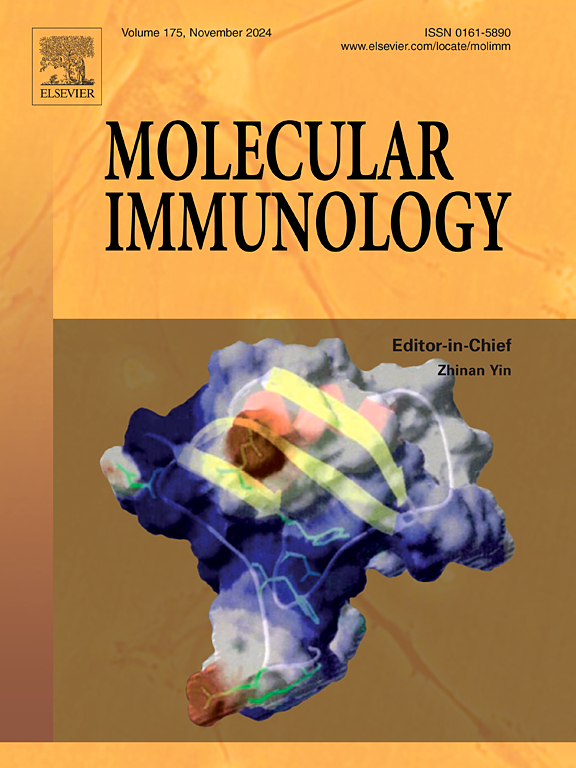The role of microglia in neurodegenerative diseases
IF 3
3区 医学
Q2 BIOCHEMISTRY & MOLECULAR BIOLOGY
引用次数: 0
Abstract
As resident immune surveillance cells within the central nervous system (CNS), microglia exert pivotal biological functions in maintaining CNS homeostasis through dynamic modulation of their proliferative capacity, chemotactic motility, efferocytosis activity, and biphasic secretory mechanisms involving both neuromodulatory factors and pro-inflammatory mediators. These specialized macrophages not only serve as the first line of defense in innate immunity but also orchestrate the regulation of adaptive immune responses; whose functional status directly governs both the physiological integrity of neural circuits and the progression of pathological outcomes. Notably, in neurodegenerative disease models, microglial functional states exhibit pronounced heterogeneity and are tightly regulated by microenvironmental cues. Upon encountering sustained hyperactivation or functional impairment, these cells precipitate a cascade of deleterious events within the neurovascular unit. Building upon these pathophysiological mechanisms, targeted modulation of microglial polarization equilibrium has emerged as a pivotal research focus in developing innovative neuroprotective therapeutic strategies. This review systematically integrates empirical evidence derived from cutting-edge methodologies—including molecular imaging, single-cell multi-omics profiling, and conditional genetic ablation—to mechanistically dissect the dual regulatory roles of microglia in orchestrating neural homeostatic maintenance and driving pathological progression in neurological disorders.
小胶质细胞在神经退行性疾病中的作用
作为中枢神经系统(CNS)内的常驻免疫监视细胞,小胶质细胞通过动态调节其增殖能力、趋化运动、efferocysis活性以及涉及神经调节因子和促炎介质的双相分泌机制,在维持中枢神经系统稳态方面发挥着关键的生物学功能。这些特化的巨噬细胞不仅作为先天免疫的第一道防线,而且还协调调节适应性免疫反应;其功能状态直接支配着神经回路的生理完整性和病理结果的进展。值得注意的是,在神经退行性疾病模型中,小胶质细胞功能状态表现出明显的异质性,并受到微环境信号的严格调节。当遇到持续的过度激活或功能损伤时,这些细胞在神经血管单元内沉淀一系列有害事件。基于这些病理生理机制,小胶质细胞极化平衡的靶向调节已成为开发创新神经保护治疗策略的关键研究重点。本综述系统地整合了来自尖端方法的经验证据,包括分子成像,单细胞多组学分析和条件遗传消融,以机械地剖析小胶质细胞在协调神经稳态维持和驱动神经疾病病理进展中的双重调节作用。
本文章由计算机程序翻译,如有差异,请以英文原文为准。
求助全文
约1分钟内获得全文
求助全文
来源期刊

Molecular immunology
医学-免疫学
CiteScore
6.90
自引率
2.80%
发文量
324
审稿时长
50 days
期刊介绍:
Molecular Immunology publishes original articles, reviews and commentaries on all areas of immunology, with a particular focus on description of cellular, biochemical or genetic mechanisms underlying immunological phenomena. Studies on all model organisms, from invertebrates to humans, are suitable. Examples include, but are not restricted to:
Infection, autoimmunity, transplantation, immunodeficiencies, inflammation and tumor immunology
Mechanisms of induction, regulation and termination of innate and adaptive immunity
Intercellular communication, cooperation and regulation
Intracellular mechanisms of immunity (endocytosis, protein trafficking, pathogen recognition, antigen presentation, etc)
Mechanisms of action of the cells and molecules of the immune system
Structural analysis
Development of the immune system
Comparative immunology and evolution of the immune system
"Omics" studies and bioinformatics
Vaccines, biotechnology and therapeutic manipulation of the immune system (therapeutic antibodies, cytokines, cellular therapies, etc)
Technical developments.
 求助内容:
求助内容: 应助结果提醒方式:
应助结果提醒方式:


